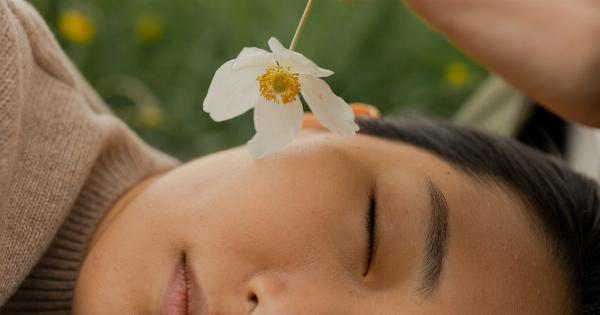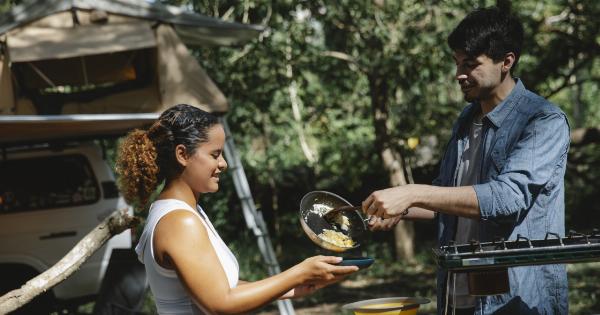“Confidence is the most attractive quality you can possess when it comes to flirting. If you believe in yourself, others will too.”.
H2: Why Confidence Matters
Confidence plays a crucial role in the world of dating and flirting. It drives attraction and gives you an aura of magnetism that draws others towards you.
When you exude confidence, you communicate your self-assuredness and make others feel comfortable around you. So, how can you boost your confidence and up your flirting game? Let’s find out.
H2: Embrace Your Uniqueness
One key to building confidence in your flirting game is embracing your uniqueness. Remember that you are an individual with your own set of strengths, quirks, and interests.
Embracing these qualities will help you establish a genuine connection with others, as they will appreciate the real you. Understand that not everyone will be attracted to you, and that’s okay. By embracing your uniqueness, you become more confident and attractive to the right people.
H2: Work on Your Self-Image
Your self-image plays a significant role in how confident you feel when flirting. Take the time to work on improving your self-image. Focus on self-care, both physically and mentally.
Engage in activities that make you feel good about yourself and take care of your physical appearance. When you feel good about yourself, others will take notice and respond positively to your energy.
H2: Practice Good Posture and Body Language
Body language is a powerful tool when it comes to flirting. By practicing good posture and confident body language, you can instantly boost your confidence and attractiveness. Stand tall, maintain eye contact, and smile genuinely.
These small changes can have a significant impact on how others perceive you. Plus, adopting confident body language can actually make you feel more confident too.
H2: Develop Conversational Skills
Having good conversational skills is another key aspect of flirting with confidence. Strive to improve your ability to engage in meaningful conversations.
Practice active listening, ask open-ended questions, and show a genuine interest in getting to know the other person. The better you become at navigating conversations, the more confident you will feel when flirting.
H2: Overcoming Rejection
H2: Rejection is a natural part of the flirting game, and developing confidence means being able to handle rejection with grace. Reframe rejection as a learning opportunity rather than a personal failure.
Understand that everyone has different preferences, and not everyone will reciprocate your interest. Instead of dwelling on rejection, use it as a chance to learn and grow. Maintaining a positive mindset will help you maintain your confidence and continue to explore potential connections.
H2: Surround Yourself with Supportive People
H2: The people you surround yourself with can greatly influence your confidence levels. Seek out friends and social circles that uplift and support you. Avoid toxic relationships and negative individuals who bring you down.
By surrounding yourself with positive influences, you can boost your confidence and feel more comfortable expressing your true self when flirting.
H2: Step Outside Your Comfort Zone
H2: Building confidence often requires stepping outside your comfort zone. Push yourself to try new experiences and engage in social activities that challenge you.
This could involve attending social events, joining clubs or groups, or even taking up a new hobby. Each time you step out of your comfort zone and succeed, you prove to yourself that you are capable, which in turn boosts your confidence in all aspects of life, including flirting.
H2: Practice, Practice, Practice
H2: Like any skill, flirting becomes more natural and intuitive with practice. The more you put yourself out there and engage in flirty interactions, the more confident you will become.
Start by practicing in low-pressure situations, such as social gatherings or online platforms, and gradually challenge yourself to flirt in more challenging scenarios. Remember, even if the outcome is not what you hoped for, each practice session contributes to building your confidence and honing your flirting skills.
H2: Embrace Rejection as Part of the Process
H2: It’s important to remember that rejection is just part of the flirting process. Not every interaction will result in success, and that’s okay. Instead of dwelling on rejection, reframe it as an opportunity to learn and grow.
Each rejection brings you closer to finding the right connection. By embracing rejection and viewing it positively, you will maintain your confidence and bounce back stronger in your flirting endeavors.
H2: Celebrate Your Small Wins
H2: Confidence in flirting is not built overnight. It’s essential to acknowledge and celebrate your small wins along the way.
Whether it’s striking up a conversation with a stranger or overcoming a fear of rejection, every step forward is worth celebrating. Recognize your progress and give yourself credit for the effort you put into improving your flirting game. Celebrating your small wins will boost your confidence and motivate you to continue growing.
H2: Conclusion
H2: Confidence in your flirting game is a crucial ingredient for success. Embrace your uniqueness, work on improving your self-image, and practice good posture and body language.
Develop conversational skills, handle rejection gracefully, and surround yourself with a supportive circle. Step out of your comfort zone, practice, and embrace rejection as part of the learning process. Finally, celebrate your small wins and continue nurturing your confidence.
By doing so, you’ll be well on your way to becoming a master of flirting and attracting meaningful connections.






























